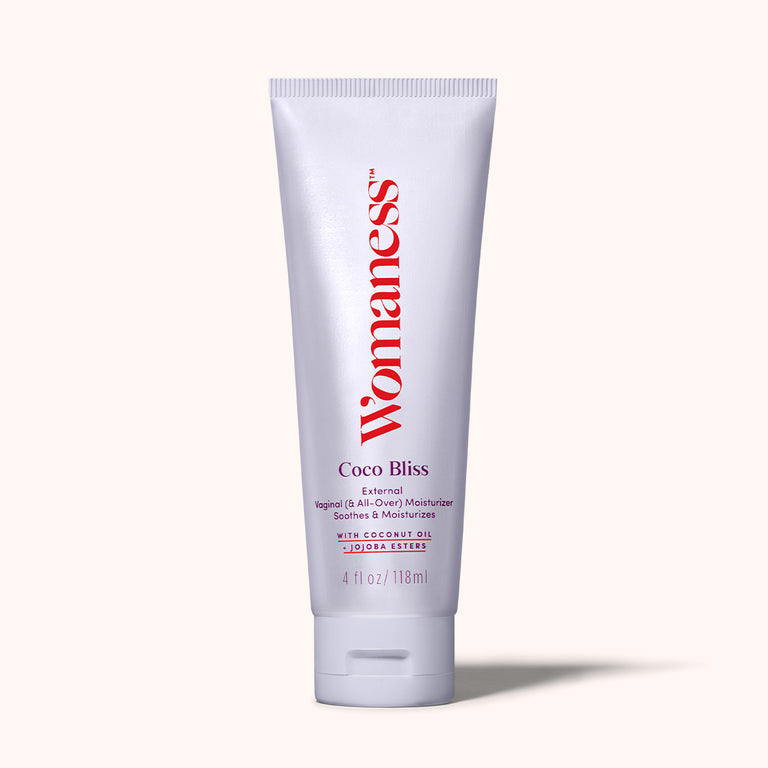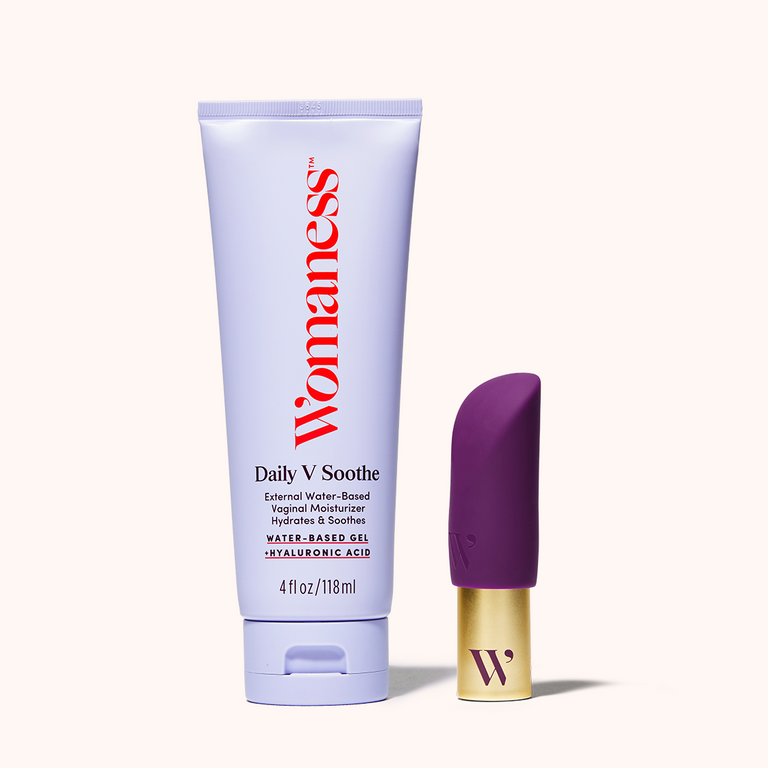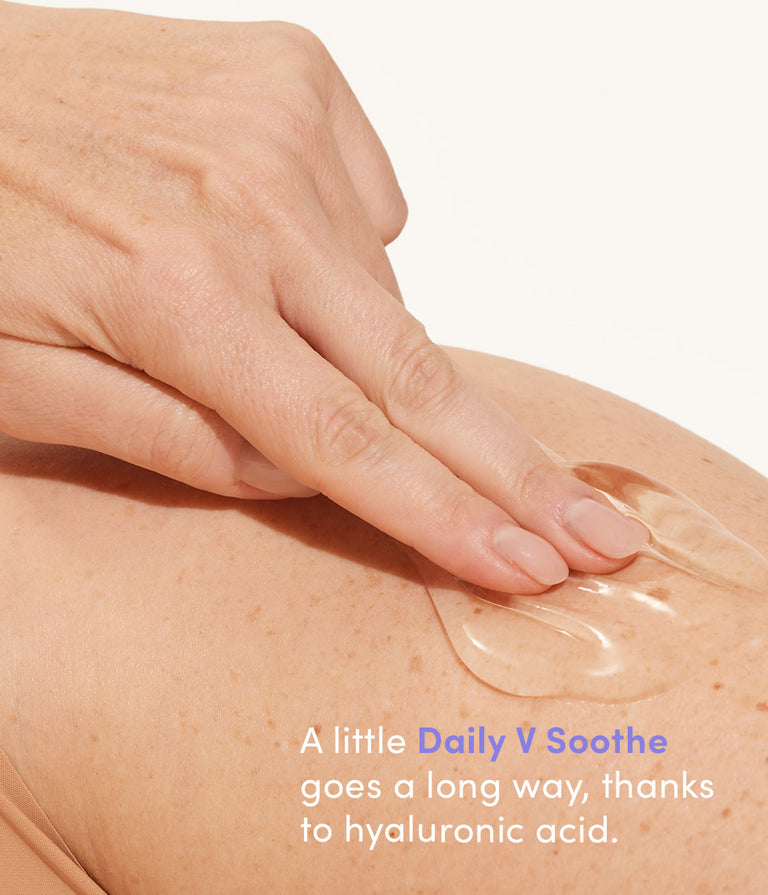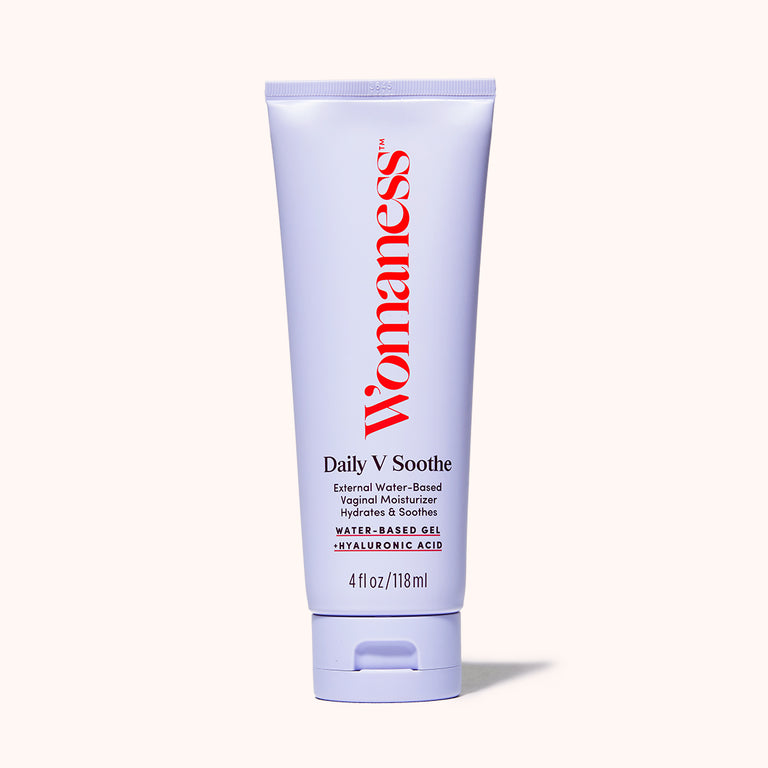By Womaness Editors 1-Minute Read

Welcome to ASK AN EXPERT, a series where we pose your real questions to our menopause experts for the intel you need. Need an answer? Post your question on The After Party, our private Facebook Group.
Your Question:
“There are water-based, oil-based, and silicone-based lubricants and vaginal moisturizers out there. But is there a particular type I should be using in menopause?”
The Answer:
From Dr. Emily Morse, Doctor of Human Sexuality & founder/host of the podcast Sex with Emily:
"It's really a personal preference. And I would say: just use lube.
No matter what age, I think lube is the most underrated sexual wellness tool. There have been so many studies that have shown that if you add lubricant to any sexual situation, no matter what it is—with yourself, with a partner—every single time, women are 80% more likely to orgasm.
"No matter what age, I think lube is the most underrated sexual wellness tool."
Because we're not going to self-lubricate all the time. Your clitoris isn't self-lubricating for sure. There's this notion that you should only use lube if you’re dry or if there's a problem. But at different times of the month, you might be wet or you might not be. So adding lube just guarantees that you'll have a good time. And that you'll be ready.
So yes, it’s a personal preference. Try them all—often!"
Get More Answers
Ask a Pelvic Heath Expert: "Kegels in menopause: How many (and how often)?"
Ask a Doctor: "How is menopause different for women of color?"
Ask a Doctor: "Why does sex hurt in menopause?"






